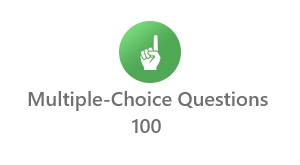
The Examination shall be conducted in three stages :
| # | Subjects | No. of Questions |
|---|---|---|
| 1 | Constitution of India | 10 |
| 2 | Code of Civil Procedure, 1908 | 15 |
| 3 | Transfer of Property Act, 1882 | 7 |
| 4 | Indian Contract Act, 1872 | 8 |
| 5 | Specific Relief Act, 1963 | 6 |
| 6 | Limitation Act, 1963 | 4 |
| 7 | MP Accommodation Control Act, 1961 | 5 |
| 8 | MP Land Revenue Code, 1959 | 5 |
| 9 | Indian Evidence Act, 1872 | 15 |
| 10 | Indian Penal Code, 1861 | 15 |
| 11 | Code of Criminal Procedure, 1973 | 15 |
| 12 | Negotiable Instruments Act, 1881 | 5 |
| 13 | General Knowledge | 20 |
| 14 | Computer Knowledge | 10 |
| 15 | English Knowledge | 10 |
Main Examinations consists of four subjective question papers, each paper consist 100 marks. First and Second question papers will be given together while third and fourth question papers will be given together. The time period for each question paper will be of 3 hours. The main examination process itself will be conducted over 2 days. Note- While answering the main exams, quoting the principle of citation would be enough. Quoting the citation itself will not earn any extra marks. Further, quoting the wrong citaVon would be detrimental.
| # | Subjects |
|---|---|
| 1 | Constitution of India |
| 2 | Code of Civil Procedure, 1908 |
| 3 | Transfer of Property Act, 1882 |
| 4 | Indian Contract Act, 1872 |
| 5 | Specific Relief Act, 1963 (I, II and VI to VIII) |
| 6 | Limitation Act, 1963 (Parts II & III) |
| # | Subjects | Marks |
|---|---|---|
| 1 | Writing on Social Issue | 30 |
| 2 | Writing on Legal Issue | 20 |
| 3 | Precis Writing | 20 |
| 4 | Translation (Hindi to English) | 15 |
| 5 | Translation (English to Hindi) | 15 |
| # | Subjects |
|---|---|
| 1 | MP Accommodation Control Act, 1961 |
| 2 | MP Land Revenue Code, 1959 |
| 3 | Indian Evidence Act, 1872 |
| 4 | Indian Penal Code, 1860 |
| 5 | Code of Criminal Procedure, 1973 |
| 6 | Negotiable Instruments Act, 1881 |
| # | Subjects | Marks |
|---|---|---|
| 1 | Framing of Issues | 10 |
| 2 | Framing of Charges | 10 |
| 3 | Judgement / Order (Civil) Writing | 40 ( Civil Judge II Class level ) |
| 4 | Judgement / Order (Criminal) Writing | 40 ( Judicial Magistrate First Class Level ) |
| 5 | Interview / Viva - Voce Details | 50 |




| # | Number of Subjects | Number of Questions | Weightage |
|---|---|---|---|
| 1 | Law (12 subjects listed below) | 110 | |
| 2 | English | 10 | |
| 3 | GK | 20 | |
| 4 | Computer | 10 |
The minimum age limit to apply for MP High Court Civil Judge Recruitment is 21 Years while the maximum age is 35 years as on the cut off date mentioned in the advertisement for the year.
You will be provided passages of about 450 words each. These passages will be derived from contemporary or historically significant fiction and non-fiction writing.
You will be provided passages of up to 450 words each. The passages will be derived from news, journalistic sources, examination of legal information.
In this section, you will be expected to read passages of around 450 words each. The passages may relate to fact situations or scenarios involving legal matters, public policy questions or moral philosophical enquiries.
In this section your following abilities shall be tested:
In this section your ability to apply various X standard mathematical operations on such information, including from areas such as ratios and proportions, basic algebra, mensuration and statistical estimation.